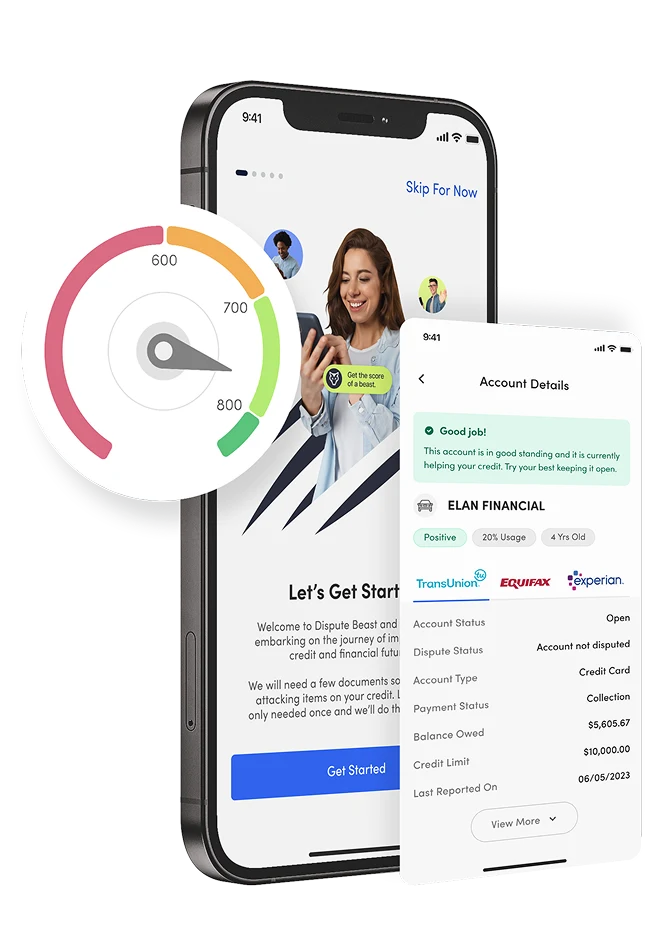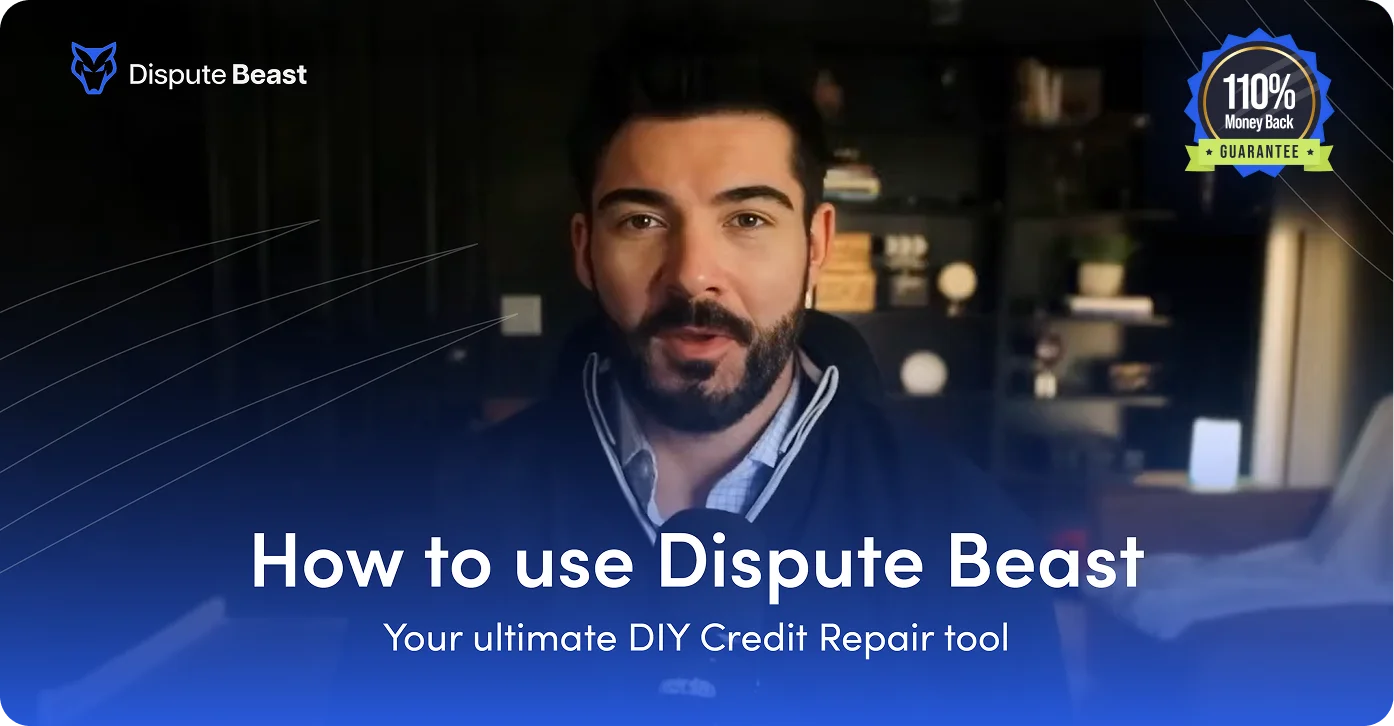If you are serious about maximizing your credit repair efforts efficiently and affordably, Dispute Beast is the ultimate tool. Make sure to read the ultimate Dispute Beast FAQ to fully understand how you can leverage this powerful DIY Credit Repair system to transform your financial health!
Hey there, curious about why you should never pay a collection agency? Buckle up because we’re about to dive into some credit repair wisdom that’ll change the way you think about those pesky collections.
So, picture this: You’ve got a collection looming on your credit report like a storm cloud on a sunny day. You might think, “I’ll just pay it off and be done with it, right?” Well, not so fast.
Here’s the lowdown: Paying off a collection might seem like the responsible thing to do, especially if you’re still within the statute of limitations (which varies depending on where you live and the type of debt). But here’s the kicker—paying off that collection won’t do squat for your credit score.
Yep, you heard me right. Even if you settle that debt, those collections can still haunt your credit report for years, dragging your score down like dead weight. That’s where the Dispute Beast comes in.
The Dispute Beast is like your secret weapon in the credit repair game. It attacks those collections from all angles, leaving no stone unturned. It’s the most effective way to get those negative marks off your report and give your score the boost it deserves.
The Dispute Beast launches its attack on collections across all three levels:
- Directly with Credit Reporting Agencies/Bureaus: The first line of attack for the Dispute Beast is hitting up the credit reporting agencies or bureaus. These are the folks responsible for compiling your credit report and disseminating it to lenders. The Dispute Beast doesn’t hold back here—it scrutinizes every negative mark, including collections, and demands proof of their validity. If there’s any inaccuracies or discrepancies, you better believe the Dispute Beast will sniff them out and demand corrections.
- Directly with the Creditor or Data Furnisher: Next up, the Dispute Beast takes the fight straight to the source—the creditor or data furnisher. These are the entities that reported the collection in the first place, whether it’s a credit card company, medical provider, or utility company. The Dispute Beast isn’t afraid to get in their faces and challenge the accuracy and legitimacy of the reported debt. It demands verification and documentation, putting the burden of proof squarely on the shoulders of those who reported the collection.
- Directly with Secondary Credit Bureaus: But wait, there’s more! The Dispute Beast doesn’t stop there. It also takes the battle to secondary credit bureaus that house credit data. These are lesser-known players in the credit reporting game, but they still wield significant influence over your credit profile. The Dispute Beast makes sure they’re not overlooked, ensuring that every avenue for challenging collections is explored and exploited to the fullest.
By attacking collections on all three levels, the Dispute Beast leaves no stone unturned in its quest to clean up your credit report. It’s a relentless defender of your creditworthiness, sparing no effort to ensure that inaccurate or unjust collections are wiped clean from your record. So, if you’re facing collections on your credit report, fear not—let the Dispute Beast do what it does best and watch those negative marks vanish like magic.
And while you’re at it, consider using the money you would’ve used to pay the collection to pay down existing debt instead. Start with those revolving credit cards—the ones with the highest interest rates—and watch your debt shrink like magic. Don’t forget to pay your bills on time too! Prevention is better than the cure, after all. By staying on top of your bills and keeping your debt in check, you’ll set yourself up for financial success down the road.
So, the next time you’re tempted to pay off a collection, remember: the Dispute Beast has your back. Attack those collections from all angles, prioritize paying down existing debt, and keep those bills in check. Your credit score will thank you later!
But wait, there are situations where paying off a collection may be necessary or beneficial:
- Legal Action: If you’ve been served by a court for the debt, it means that your creditor or collection agency is within their rights to sue you for the money owed. In such cases, ignoring the situation can lead to further legal consequences, including wage garnishment or liens on your property. Paying off the debt may be necessary to avoid these legal repercussions, even though it won’t directly help your credit score.
- Loan Approval: Some loan officers or lenders may require you to pay off outstanding collections or charge offs in order to close a loan. This is particularly common in mortgage lending, where lenders may have specific requirements regarding outstanding debts. While it may not directly improve your credit score, paying off the debt could be necessary to secure approval for the loan.
- Employment Requirements: In certain industries or for specific job roles, employers may conduct credit checks as part of the hiring process. If a collection or charge off appears on your credit report and your prospective employer requires a clean credit history, paying off the debt may be necessary to secure the job. However, it’s worth noting that not all employers conduct credit checks, and local regulations may limit their use in hiring decisions.
- Tangible Benefits: Finally, it may be worthwhile to pay off a collection or charge off if doing so results in tangible benefits for you. For example, if the creditor agrees to remove the negative mark from your credit report as part of the settlement agreement, or if you negotiate a significant reduction in the amount owed, paying off the debt could be advantageous. Additionally, if the debt is preventing you from obtaining housing, utilities, or other essential services, resolving it may be necessary for practical reasons, even if it doesn’t directly impact your credit score.
In summary, while paying off collections or charge offs may not always improve your credit score, there are instances where doing so may be necessary or beneficial for legal, financial, or practical reasons. It’s essential to carefully consider your individual circumstances and weigh the potential consequences before deciding whether to settle a debt.
Reminders!
- Read the Ultimate Dispute Beast FAQ for answers to all your questions!
- Get your free Dispute Beast account and start sending your attacks with the press of 1 button by going to https://disputebeast.com/ and clicking get started
- To continue using Dispute Beast, you must maintain an active and paid subscription to Beast Credit Monitoring at all times!
Keep Attacking: Don’t forget to keep up with those attacks every 40 days! Dispute Beast will take a good look at your report and go after any new negatives that have popped up. But hey, I know you might be wondering how long it takes to improve your credit. Let’s think of it like getting in shape. The best results come from consistently eating right and hitting the gym. Same goes for credit improvement. Dedicate 6-12 attack rounds while paying your bills on time, keeping your utilization low (between 1-6%), and limiting your inquiries. This combo should yield some amazing results. Remember, your credit score is a byproduct of your financial behavior. Just like the numbers on the scale fluctuate, your credit score will too. Stay focused, stay consistent, and you’ll see the results you deserve!




